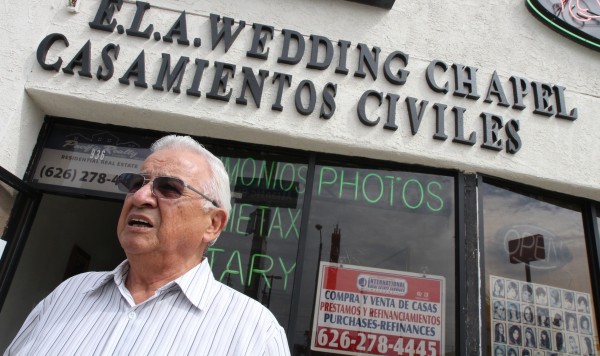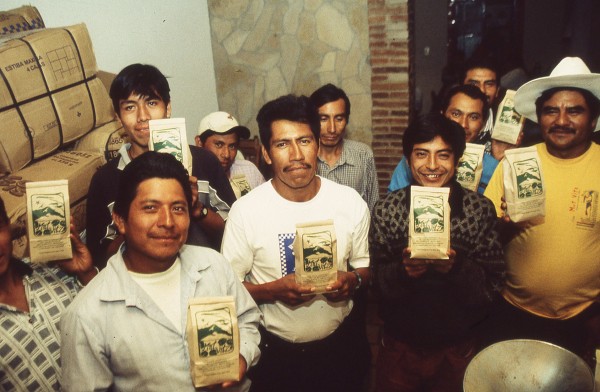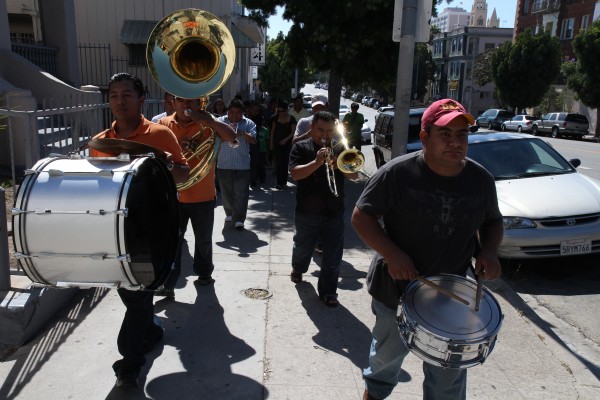
Simon Guillen has been on Atlantic Boulevard in East L.A. for 36 years, he tells me.
He’s in real estate, been a notary, a photographer, is a pastor, and a month ago just opened a wedding chapel. He’s a flexible guy “out of necessity,” he says.
I met Guillen, a native of Peru, across the street from the robbery of the Bank of America on Atlantic Boulevard in East L.A. this morning.
“East L.A. is a quiet place,” he says. Years ago, it was known for gangs, but that was years ago, which Guillen remembers well and is not sad to see gone.
The area is one of those benefited enormously by the regional collapse in gang activity in Southern California. I say activity, because there still is gang violence in some areas, though it, too, is far less than even a decade, much less two decades, ago.
But the gang activity of daily hanging out, graffiti, commandeering crash pads from empty houses, dominating street corners or parks — what used to cause such grinding blight and feelings of powerlessness among residents — all that has dropped off to almost nothing.
Go to almost any once-notorious neighborhood and the story is the same.
It’s one of the great tales of Southern California — gang culture was one of the region’s great exports, after all — and you can see it pretty clearly in East L.A. Gangs still exist, but they’ve largely taken it indoors.
All this amounts to massive a tax cut for those neighborhoods (poor and working class) where gangs and their activity were such banes.
No longer do families have to worry about their garages being graffitied, or their property values being whacked because they’re down the street from a market a gang took a liking to.
“You people need to come here and write about this,” Guillen says.
 Most recently, U.S. Marine Lance Cpl Richard A. Rivera, Jr., of Oxnard, was killed in Afghanistan in a green-on-blue attack.
Most recently, U.S. Marine Lance Cpl Richard A. Rivera, Jr., of Oxnard, was killed in Afghanistan in a green-on-blue attack. trying to get into the Marines, then was killed less than two months into his deployment in Iraq. Amazing, the story his mother told of how hard he tried, and the things he did, to be acceptable to the Marine Corps.
trying to get into the Marines, then was killed less than two months into his deployment in Iraq. Amazing, the story his mother told of how hard he tried, and the things he did, to be acceptable to the Marine Corps. Sgt. Michael Cardenaz, of Corona, was an enlistee planning on making the Army a career. A larger-than-life guy to the folks who knew him.
Sgt. Michael Cardenaz, of Corona, was an enlistee planning on making the Army a career. A larger-than-life guy to the folks who knew him.











